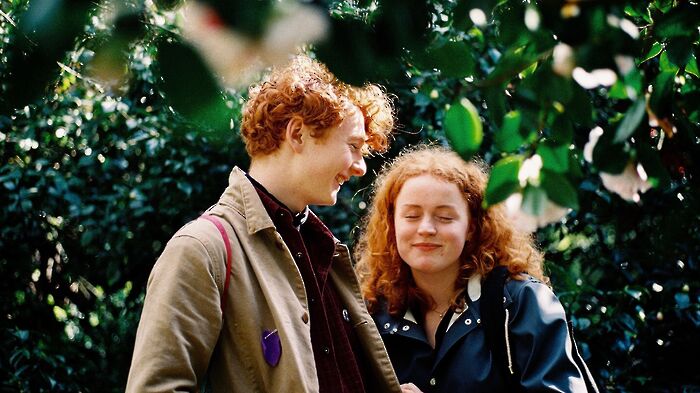GoGo Penguin interview: “When I was a kid I only dreamt about being able to see the world like this!”
Before their gig at the Junction on 13th November, Music Editor Miles Ricketts chats to GoGo Penguin’s Chris Illingworth about creative freedom, Alcatraz and Netflix

GoGo Penguin may sound like an innocent group of guys from their name, but in the world of jazz they are a pretty intimidating force. After being nominated for the Mercury Prize in 2014, their momentum has barely ceased. The release of their fourth album, A Humdrum Star, early this year saw them embark on a globe-trotting tour and cemented their position as one of the most dynamic jazz outfits currently on the circuit.
But, in their own words, they’re not a jazz band. Consistently innovating with electronic instrumentation and structure, they bring an unpredictable energy to every record and performance. This musical fluidity was something I particularly wanted to ask the band about, so I caught up with pianist Chris Illingworth ahead of their gig in Cambridge on the 13th of November.
What’s been the highlight of this album cycle so far?
We did quite a long run across both coasts of the States, where Nick [Blacka, bassist] and I were able to seize the opportunity to go and have a look around. It’s pretty rare that we get this free time, but being able to explore San Francisco and then visit Alcatraz was amazing. It’s incredible to be reminded how lucky we are that we’ve got to this point, where we’re travelling to these kinds of places. When I was a kid I only dreamt about being able to see the world like this! Being able to meet loads of new people all over and see that they’re really enjoying the music that we’re making is great.
I always remember the first time we got together in this trio, there was that moment of recognising that it just felt right
You’re playing so many different varieties of concert venue, not just on your upcoming UK tour but all over the world. A lot of ‘jazz’ groups consistently play the same sort of intimate halls, but you’re hopping from the Royal Albert Hall one week, to a venue such as the Junction here in Cambridge the next. How do you prepare your sound and approach for each room?
We just have to feel it on the day and take it as it comes. Even if it’s somewhere we’ve already played before, it’s all about that immediate atmosphere. While at sound check we can get a feel of what the room’s like, once the gig has begun we just have to feed off the crowd and improvise, letting the music bounce off that kind of feeling.
Jazz trios often talk about having an unconscious connection with each other, and this is clear from the way you play together, particularly live. But are there any moments when there are elements of discord?
Yeah, absolutely. That’s always going to happen, because at the end of the day we’re very different individuals. I always remember the first time we got together in this trio, there was that moment of recognising that it just felt right. We occupied the same headspace and were aiming for the same kind of goal – but it’s such a complex thing. There are those moments where you’re grinning up at each other wondering, “I don’t have a clue where you’re going with this!” It’s all push and pull, but we love that freedom. We don’t really think of ourselves as a jazz band – we’re just a band – but we want to preserve that freedom and improvisation that jazz values, to keep every single performance unique and different.
Sometimes it feels like your music is so perfectly balanced, and yet it consistently surprises by just tipping up slightly, in a way that’s urgent and alive.
When writing, we consciously desire to make the music express something and feel alive. We’ve all taken this from music in the past, whether studying or just listening: music is trying to say something. It feels like the person who’s made that music is trying to connect with you, or imply some emotion or idea. The only way you can do that is by keeping it unpredictable.
Touring isn’t that luxurious rock ‘n’ roll lifestyle. There’s some of that, but there’s also a dark and negative side
Does that unpredictability get harder to maintain as the band matures, with you forced to seek new ways to keep things from getting comfortable?
I used to do quite a lot of teaching, and I always made it crystal clear to the kids that music is incomplete. This can be quite scary at first, but you have to learn that this is a positive. Once you realise that no matter how much you practice, you’re never going to be perfect, it becomes a really beautiful thing. There are things I’ve learnt to do on the piano that very few players do, but this is the same for so many other pianists out there, doing things that I’ve never even thought of. And that’s the exciting thing, constantly finding new avenues and growth. Sometimes it won’t work, but it’s worth taking those risks to reach those highs.
How do you keep sane on the road? What are your particular rituals?
There are days when music is all you need, but other days the last thing you want to do is listen to music. In the middle of a tour I often just don’t have that space in my mind for new music, and I need something different. At the moment I’m rotating between a great book of James Tiptree Jr. science fiction short stories and my newly acquired Nintendo Switch – oh, and I’ve borrowed my wife’s iPad for Netflix! We have a good laugh as a band, and at the end of the day it’s a family where we all support each other. You’ve just got to recognise when someone needs their space.
A lot of people complain about touring, but you’ve made me quite envious. Visiting Alcatraz and still getting to play music every night.
Those periods are rare but you take them when they come. Touring isn’t that luxurious rock ‘n’ roll lifestyle. There’s some of that, but there’s also a dark and negative side. You develop ways of coping with it. There’s nothing I can really complain about though, I absolutely love what we do and we’re really, really lucky!
GoGo Penguin play the Cambridge Junction on 13th November. You can purchase tickets here
 Comment / College rivalry should not become college snobbery30 January 2026
Comment / College rivalry should not become college snobbery30 January 2026 Features / Are you more yourself at Cambridge or away from it? 27 January 2026
Features / Are you more yourself at Cambridge or away from it? 27 January 2026 Science / Meet the Cambridge physicist who advocates for the humanities30 January 2026
Science / Meet the Cambridge physicist who advocates for the humanities30 January 2026 News / Downing Bar dodges college takeover31 January 2026
News / Downing Bar dodges college takeover31 January 2026 News / Vigil held for tenth anniversary of PhD student’s death28 January 2026
News / Vigil held for tenth anniversary of PhD student’s death28 January 2026









